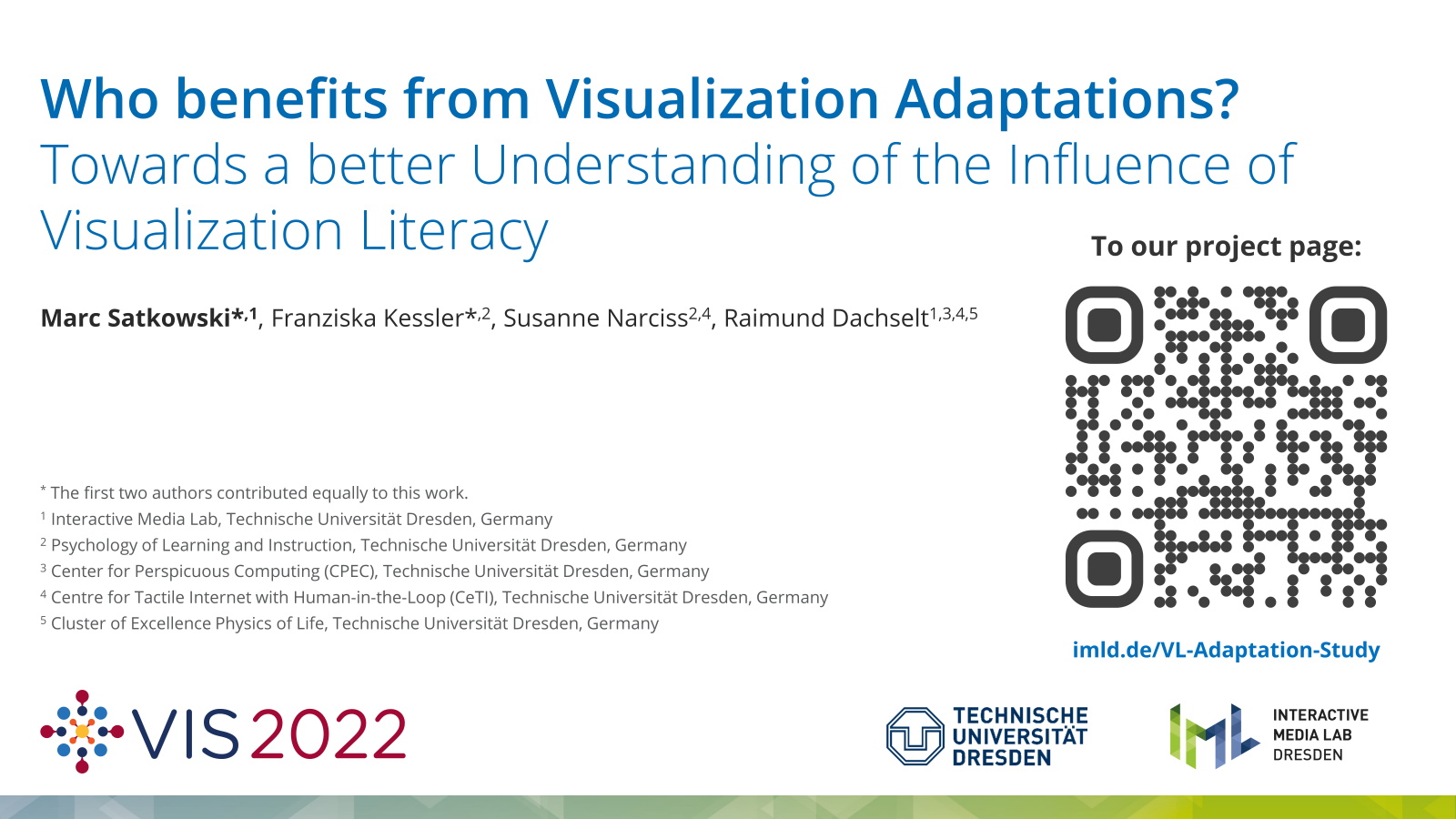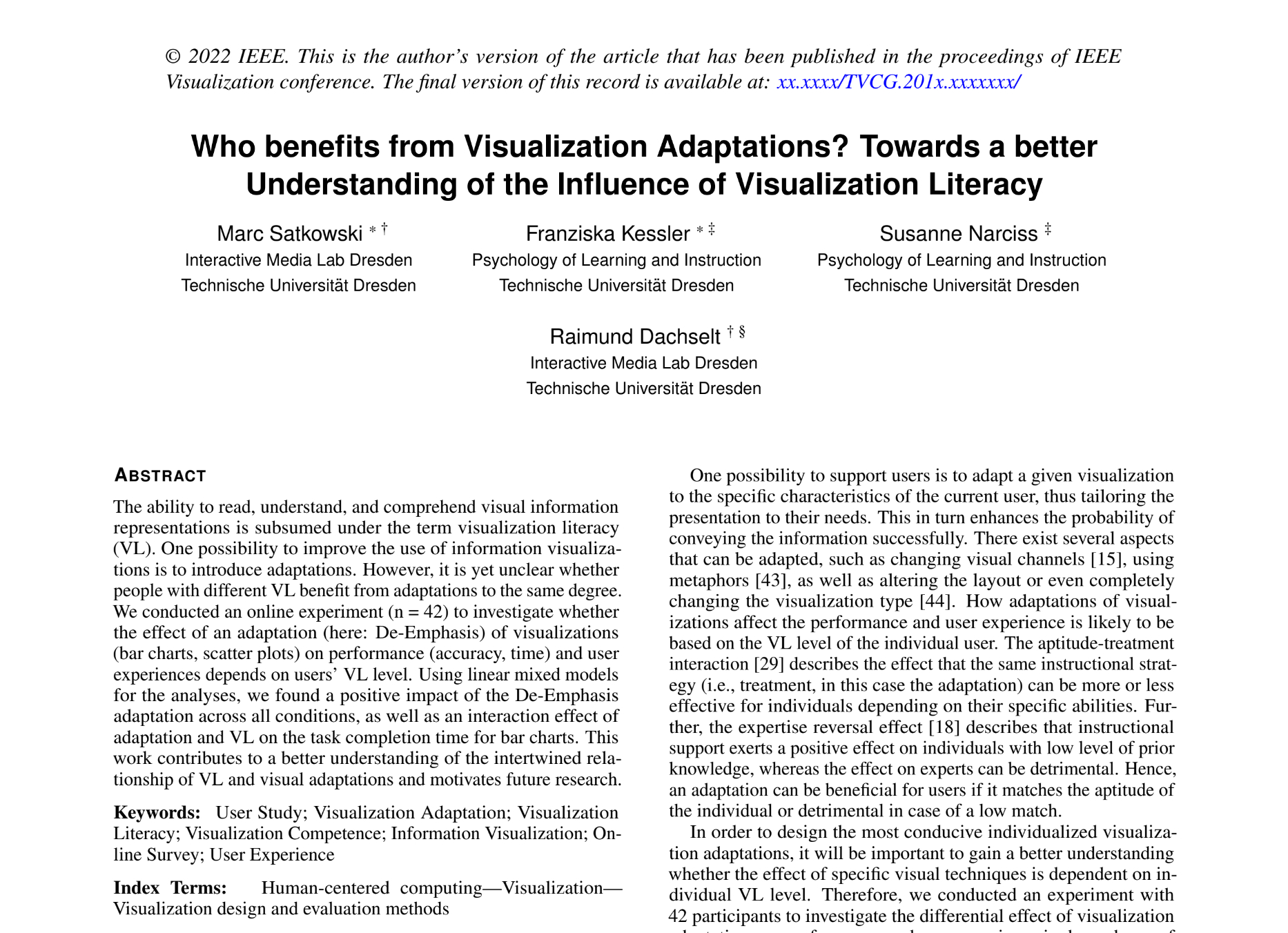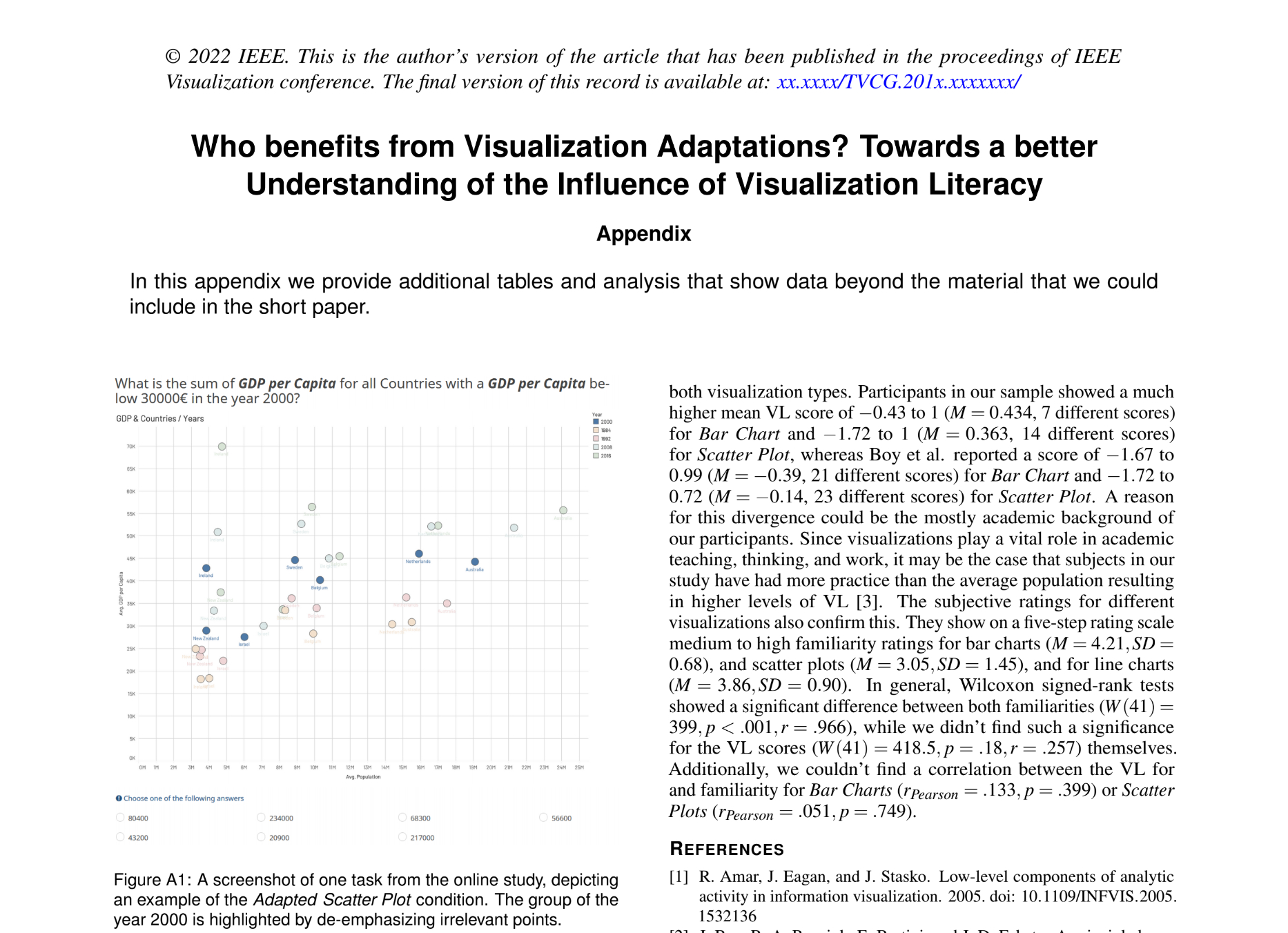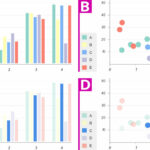Who benefits from Visualization Adaptations? Towards a better Understanding of the Influence of Visualization Literacy

Abstract
The ability to read, understand, and comprehend visual information representations is subsumed under the term visualization literacy (VL). One possibility to improve the use of information visualizations is to introduce adaptations. However, it is yet unclear whether people with different VL benefit from adaptations to the same degree. We conducted an online experiment (n = 42) to investigate whether the effect of an adaptation (here: De-Emphasis) of visualizations (bar charts, scatter plots) on performance (accuracy, time) and user experiences depends on users’ VL level. Using linear mixed models for the analyses, we found a positive impact of the De-Emphasis adaptation across all conditions, as well as an interaction effect of adaptation and VL on the task completion time for bar charts. This work contributes to a better understanding of the intertwined relationship of VL and visual adaptations and motivates future research.
Media: Videos, Slides, and Supplemental Material
Pre-Recorded Talk @ IEEE VIS ’22
Soon!
25 seconds Preview
Supplemental Material
Related Publication
@inproceedings{satkowski2022who,
author = {Marc Satkowski and Franziska Kessler and Susanne Narciss and Raimund Dachselt},
title = {Who benefits from Visualization Adaptations? Towards a better Understanding of the Influence of Visualization Literacy},
booktitle = {IEEE Transactions on Visualization and Computer Graphics},
year = {2022},
month = {10},
location = {Oklahoma City, USA (Hybrid)},
doi = {10.1109/VIS54862.2022.00027},
publisher = {IEEE}
}List of additional material
Related Student Theses

Competence-based Adaption of Visualizations
Vincent Schmidt November 26th, 2019 until August 11th, 2020
Supervision: Marc Satkowski, Raimund Dachselt
Acknowledgments
We thanks Vincent Schmidt for the study support. This work was funded by the Deutsche Forschungsgemeinschaft (DFG) by DFG grant 319919706/RTG 2323, by DFG grant 389792660 as part of TRR 248 – CPEC (see https://perspicuous-computing.science), and as part of Germany’s Excellence Strategy – EXC- 2050/1 – 390696704 – Cluster of Excellence “Centre for Tactile Internet with Human-in-the-Loop” (CeTI) of TU Dresden.




